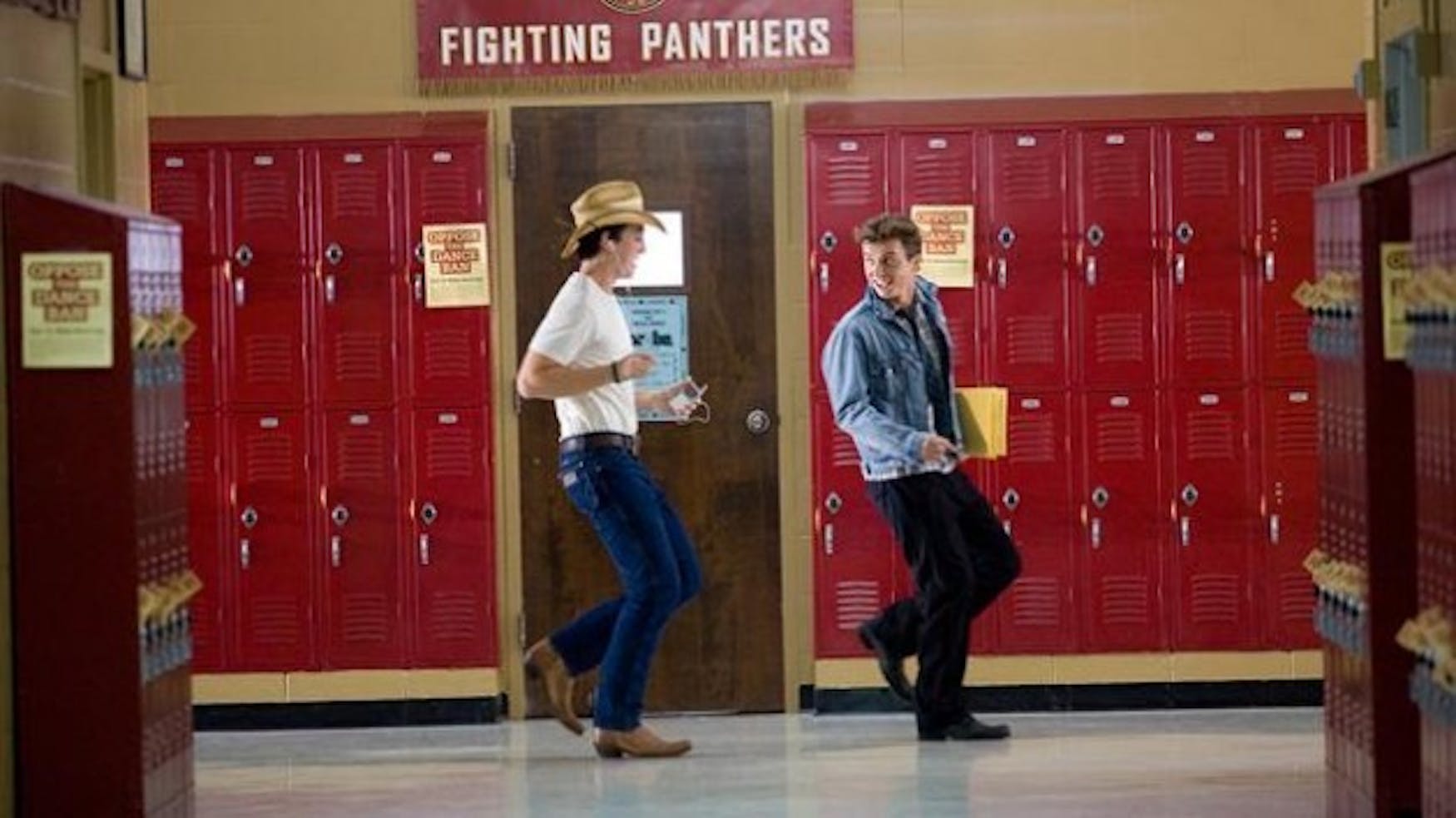New generation dances off in 'Footloose'
As I sat alone in the deserted movie theater at 2:10 p.m. last Thursday watching Footloose by myself, I had an epiphany. No, it wasn't about how I should probably find some more friends. I started thinking about how my life would be different if dancing were banned in my town. In some ways, it wouldn't be so bad. Frat parties would be a lot less creepy, since it would be harder for random strangers to grope girls without the cover of loud music and darkness. It would profoundly change the college courtship experience, as you would no longer be able to make a move on a cute guy or girl in the middle of a dance floor. People would probably rely more on drinking to fill in the gaps or have actual conversations instead of mindlessly moving our bodies around to a beat. Thank God for dancing! I, for one, wouldn't want to be at that party.
Once I snapped out of this existential daydream, I refocused on the movie. Anyone who has seen the 1984 original with Kevin Bacon already knows the plot, and the remake followed it closely. The film follows the story of Ren MacCormack, a bad boy from Boston played by professional dancer and newcomer actor Kenny Wormald. Ren moves to the archetype of small-town America—Beaumont, Texas—after his mother dies of leukemia. Ren, a smart-aleck city kid, is the obvious outsider. However, his earnestness and charm earn him fast friends, including the lovably goofy Willard (Miles Teller) and the town Reverend Shaw Moore's (Dennis Quaid) rebellious daughter, Ariel (Julianne Hough).
What binds Ren to his new friends is their shared reliance on dancing as an outlet for their frustrations with the social restrictions in Beaumont. Ever since five high school students were killed in a car crash after leaving a party, the already-conservative town placed a ban on public dancing and loud music, plus a blanket curfew for all residents under 18. This town law was passed under the leadership of Reverend Moore, whose son died in the crash. Naturally, this leads to a youth culture in Beaumont that relies on high-adrenaline tractor races and speakeasy-esque dance parties hidden in drive-in theaters to socialize. Ren soon realizes that he can't live in a town where teenagers are forced to repress themselves like this and challenges the law by organizing a petition to reinstate public dancing.
Footloose works as a remake in part because the original incorporated many timeless themes and could be easily reinterpreted for our generation. Let's be honest—not much has changed since the Reagan-era '80s in small-town America. There is still a major culture clash between big northern cities and small-town America. Teenagers still rebel against their parents, and parents still try to control their children. Alcohol, drugs and parties are still a major part of the American youth experience and will still be a part of rebellious teenage culture in future generations. This is why Footloose succeeds as a remake: Beaumont looks like the America we know today.
The dancing scenes are a huge asset of the original film, and the remake definitely does them justice. In an attempt to attract a modern audience, the new version incorporates a hip-hop influence, including impressive break dancing sequences by unexplained dance crews that crop up randomly. It definitely gives the entire movie an updated feel. I thought the country-inspired hoedown scenes were especially great. I almost believed that the dancers were really just small-town kids who grew up on line dancing and not actors and extras who spent weeks rehearsing their moves. This is exactly what movie dance sequences should look like—they should all seem this natural—unlike Step Up, for example, whose dancing looks way too impressive to be believable. I didn't have to try so hard to suspend my disbelief while watching Footloose.
My Footloose experience was sort of a lonely one, so I'd definitely recommend bringing a few friends if you want to check it out. If you're a diehard fan of the original, the remake might not live up to your standards, though the acting is on par with the original version and the characters are just as believable. The new film stays faithful to the original, and it is almost eerie how well the nearly 30-year-old themes apply in 2011. However, it's refreshing to see that not much has changed since 1984, in the same way that I was comforted by the movie's feel-good ending. It almost makes me empathize with the Beaumont oligarchy, desperate to avoid the changing world. Footloose made me feel like some things never change, even when they are rescripted for a new generation.



Please note All comments are eligible for publication in The Justice.